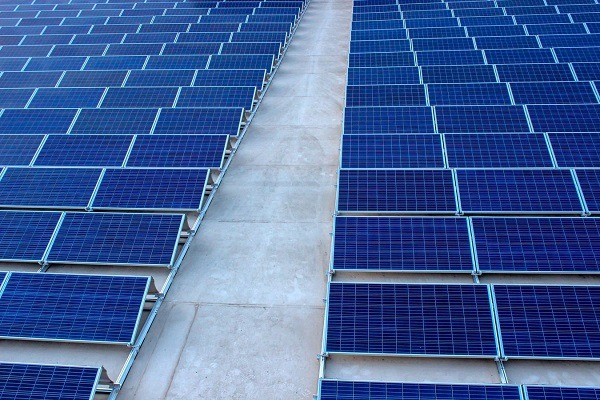Sustainable lifestyle seems to be a huge trend worldwide but despite what some people still think, the term is far from being just a catchphrase. Mother nature generously gives us plenty of opportunities to satisfy our needs for water, food, and energy without devastating our beautiful planet.
If you want to join an already pretty big crowd of those who take advantage of all conceivable and inconceivable conveniences and at the same time do not pollute the environment or decrease supplies of precious resources, here is everything you should know about renewable energy.
Endless Source Of Power
Wonder, what is the most terrible nightmare of the majority of earthlings? Be left without electricity – we bet, it is yours too. If water suddenly stops to come out of the tap, you will just jump in your car, head down to the nearest supermarket, and buy a bunch of hefty bottles to make up for the gap. But what if you run out of electricity? There is no shop where you can purchase it, and to make things worse, you won’t even be able to buy a single bottle of water because shops do not work during a power outage.
The concept of renewable energy is the universal solution to millions of similar problems. The point is this energy is generated by sustainable sources, meaning you can’t run out of power simply because these sources are infinite (at least in our sense of infinity) – like the sun, for example. Other known and broadly used sources of renewable energy are wind, water, geothermal heat, and biomass. Let’s take a closer look at each type of renewable energy and see how it works and what are the benefits. Meanwhile, to learn more about renewable energy engineering jobs, click the link.
Solar Energy
Long before Academy Award winner Colin Firth came into the limelight trying to upgrade his massive Victorian house in one of the most luxurious and expensive areas of London with solar panels, the sun was used as a great source of power by many homeowners in different parts of the globe. According to experts from fireflyenergyllc.com, incredibly diverse applications, reduced energy bills, and low maintenance cost make solar panels the winning combination that attracts more and more people. Indeed, as long as there is sunshine, you can create your own electricity and not worry too much about the ever-growing prices of utility suppliers. Did you know that sunlight is one of our planet’s most abundant energy resources, which is freely available to everyone?
Wind Energy
Being actually a form of solar energy, the wind is a cost-effective and entirely clean source of power. Wind turbines can be built on the ground and in the sea, delivering electricity even to remote properties. However, in contrast to solar energy, the wind counterpart has certain cons: turbines might cause noise and aesthetic pollution, as well as negatively affect local wildlife – birds and bats are often killed by the spinning blades.
Hydro Energy
Hydropower is nothing new and it has been one of the most widespread and developed sources of renewable energy for many years. Fueled by water, it can’t pollute the air but can generate huge amounts of energy within short timeframes. In addition to that, modern water power facilities bring an array of benefits to the local communities, offering the public a wide variety of recreational opportunities such as fishing, swimming, and boating, to name just a few.
Geothermal Energy
Even though Iceland is the first place that strikes people’s minds when it comes to geothermal energy, this unique Nordic island is far from being the only country to leverage that energy source. However, the latter can be really cost-efficient if it is freely available in large amounts, hence geothermal energy doesn’t enjoy worldwide popularity, being reserved for locations with relatively easy access to the heat generated within the earth.
Biomass Energy
Carbon-neutral and less expensive than fossil fuels, biomass is widely available and a 100% sustainable source of energy. Even though at a certain stage, the process involves burning organic materials in order to produce electricity, the use of modern technologies minimizes the negative impact on the environment. However, this reliable source of renewable energy comes with a couple of cons: relatively high costs and demand for space. On the bright side, biomass helps reduce waste and pressure on landfills.
No energy source is perfect but all things considered, the pros of renewable energy clearly overweight its cons. An inseparable part of sustainable living, renewable energy sources not only help save our planet for future generations but also make it a better place to live already today.

